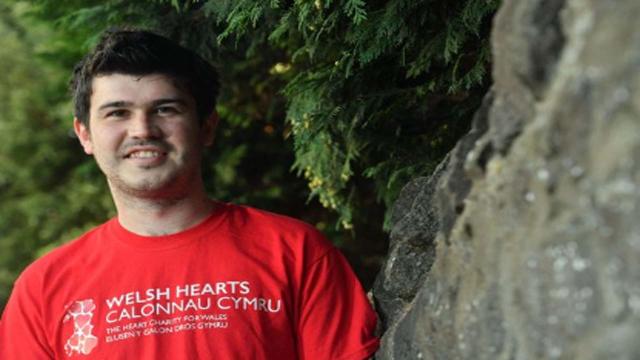James Scanlon was about to have a night out with friends at a nightclub in Cardiff when he suddenly fell to the ground and stopped breathing. While he was close to death with his skin turning blue, revellers surrounding him used their phones to take video footage of his cardiac arrest, instead of calling for help.
Fortunately, Scanlon’s friends called for an ambulance, and while there was no defibrillator on board, a paramedic performed lifesaving CPR on him. The young father-of-one was clinically dead for 20 minutes before a second ambulance arrived with a defibrillator.
Today’s video generation
James told Wales Online that the second paramedic gave him two shocks with the defibrillator and got his heart beating again. However, he was still in critical condition and fighting for his life.
'My heart stopped and all people did was take videos': A cardiac arrest victim speaks out https://t.co/d7cyLIpdmE pic.twitter.com/zwqKxiG9iC
— WalesOnline (@WalesOnline) September 8, 2018
Scanlon, who hails from Llandaff, said he was at the Revolution nightclub close to Cardiff Castle with his friends. When they told him partygoers from the club took video and photos of him on their phones instead of offering help, he was shocked. He said he guesses this is the generation we now live in, which is sad - when people see something odd going on, they pick up their phones to capture it for social media.
He said there was even a video on Facebook for a while, which was quickly taken down.
Threat of brain damage from cardiac arrest
The ambulance took James to the University Hospital of Wales, where doctors told his family it was likely brain damage had occurred. Once he was stabilised, Scanlon was placed in an induced coma for 72 hours. He then received therapeutic hypothermia treatment in order to bring down his body temperature.
When James woke up in the cardiac ward, he wondered what had happened to him, assuming that he had been beaten up. He had no memory of what had happened seven days before the incident occurred. Scanlon admits he is lucky to be alive, as he quoted statistics that said only one in 10 people are likely to survive such a cardiac arrest outside of a hospital.
People film dad in Cardiff suffer cardiac arrest and lie 'dead' - https://t.co/xGs0qdu1q6 pic.twitter.com/nk5GCUGFdW
— TheNationalNews (@NationalUKNews) September 8, 2018
As reported by the Daily Record, James has now been diagnosed with Brugada syndrome, which is a very rare, hereditary condition where electrical signals are affected as they pass through the heart, causing it to beat too fast. Doctors have now given Scanlon a personal defibrillator in his chest, which can be used to shock his heart if the same thing should happen again.
Still here to care for his daughter
James believes he survived the incident to be there for his daughter, three-year-old Erin, and says that is his main goal in life.
He said how awful it would be for his daughter to be without her father, going on to say she is “absolutely amazing.” He went on to add that it was lucky he was out with friends, as many with Brugada syndrome tend to die in their sleep.
![Revellers took video footage of a man suffering cardiac arrest, instead of calling 999. [Image Elliott Brown/YouTube] Revellers took video footage of a man suffering cardiac arrest, instead of calling 999. [Image Elliott Brown/YouTube]](https://staticr1.blastingcdncf.com/media/photogallery/2018/9/8/660x290/b_502x220x82/revellers-took-video-footage-of-a-man-suffering-cardiac-arrest-instead-of-calling-999-image-elliott-brownyoutube_2091825.jpg)


